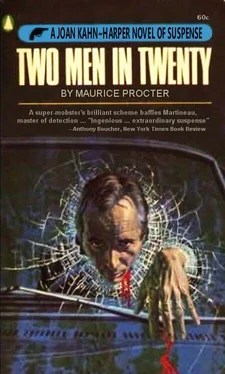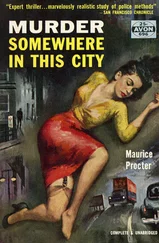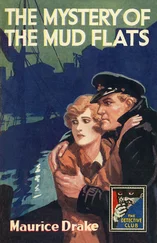Maurice Procter - Two men in twenty
Здесь есть возможность читать онлайн «Maurice Procter - Two men in twenty» весь текст электронной книги совершенно бесплатно (целиком полную версию без сокращений). В некоторых случаях можно слушать аудио, скачать через торрент в формате fb2 и присутствует краткое содержание. Год выпуска: 1963, Издательство: London : Hutchinson, Жанр: Полицейский детектив, на английском языке. Описание произведения, (предисловие) а так же отзывы посетителей доступны на портале библиотеки ЛибКат.
- Название:Two men in twenty
- Автор:
- Издательство:London : Hutchinson
- Жанр:
- Год:1963
- ISBN:нет данных
- Рейтинг книги:4 / 5. Голосов: 1
-
Избранное:Добавить в избранное
- Отзывы:
-
Ваша оценка:
- 80
- 1
- 2
- 3
- 4
- 5
Two men in twenty: краткое содержание, описание и аннотация
Предлагаем к чтению аннотацию, описание, краткое содержание или предисловие (зависит от того, что написал сам автор книги «Two men in twenty»). Если вы не нашли необходимую информацию о книге — напишите в комментариях, мы постараемся отыскать её.
Two men in twenty — читать онлайн бесплатно полную книгу (весь текст) целиком
Ниже представлен текст книги, разбитый по страницам. Система сохранения места последней прочитанной страницы, позволяет с удобством читать онлайн бесплатно книгу «Two men in twenty», без необходимости каждый раз заново искать на чём Вы остановились. Поставьте закладку, и сможете в любой момент перейти на страницу, на которой закончили чтение.
Интервал:
Закладка:
'You can get up,' he said, 'and show me everything in this house that's been hoisted in Granchester.'
Flo did not get up. 'There is nothing else. I just fancied that fur, and nobody was looking.'
'They don't leave twenty-quid furs just lying about. They don't handle 'em like cheap dresses. Would the saleswoman know you again?'
'She never even saw me. There was a woman looking at stoles, and there were half a dozen on a table. I didn't linger. I just saw it and slipped it on, and worked the tag off as I walked away. I was out of the place long before they missed the fur.'
'Which shop was it?'
'Maxim's, the big store.'
'Is that the truth, the fur is the only thing you've hoisted in this town?'
'Yes.'
Cain looked at his wife. 'Is that right?'
'Yes, as far as I know,' Dorrie said.
'What about you? Have you lifted anything?'
Dorrie's chin came up. 'No, I haven't. And don't you strike my sister again.'
'Strike her? If she touches anything else I'll skin her alive. Now, we're all going along to her bedroom and we're going to look at all her stuff, and she's going to tell you where she got it. I'm not having anybody in my family acting like a common thief.'
9
As the days grew longer Cain decided that there would be no more evening robberies. For the next few weeks, according to the suitability of the premises, work would be done after dark, or in the daytime on Sundays or in the afternoons of early closing days.
With an early closing day job in mind, he spotted a big Co-operative store in Sedgeworth, a new town of council houses just inside the city boundary. It was a new store and it would probably have a new safe. He did not mind. His team had become very knowledgeable about safes. He sent Dorrie to take a preliminary look at the place. She caught a bus in the big bus station in Somerset Square, and alighted at the terminus in Sedgeworth's modern, planned, shopping square. Following her husband's precise directions, she found the Co-op only a little way from the square, which was actually a circle. Her time was right, a few minutes before 12.30 P.M. on Wednesday, early closing day. It was a fine warm day, almost, but not quite, sunny. A good day for work of this kind. Looking in shop windows, she drifted along towards the Co-op. Passing it, she saw that there was a serving staff of seven on view behind the counters, and nine customers in the shop. Before she was quite past another man appeared behind the counter. He was a brisk, wiry man who must have been close on sixty years old. He was not wearing a white overall. The manager, she decided. He was the man whose movements she had to watch today.
She moved on a little way, still looking in shop windows. While seeming to be interested in goods on display, she was able to count the customers as they emerged from the Co-op. One more customer, a stout, panting woman, bustled into the shop just on closing time. Dorrie crossed the street, seeking a vantage point from which she could unobtrusively count the staff as they emerged. For this purpose she hoped to find a window which would act as a mirror. For her to stand staring at the Co-op was obvious behaviour outside her code of conduct for these occasions.
Directly opposite the Co-op was a smart little women's gown shop with a deep glassed-in doorway. The doorway was arranged so that the shop had one fairly big window, and one window with much less display space behind it. The garments in the windows were few and select, and Dorrie forgot her mission for a moment while she looked at them with real interest. The back of the smaller window was mirror glass, no doubt put there so that prospective customers could see the rear aspects of the things on display.
The mirror did not reflect the Co-op across the street, it showed the shops beyond the Co-op, and beyond the point where Dorrie had crossed the road. And looking in this mirror Dorrie made an unnerving discovery. A little way beyond the point where she had crossed, a tall blonde girl in her early twenties was standing in a doorway. And the girl's gaze appeared to be fixed on Dorrie's doorway.
Dorrie moved further into the doorway. Now there were two oblique sheets of glass between herself and the girl, and she was further hidden by a tastefully attired waxen figure over whose slim shoulder she was looking. She could see the girl quite clearly.
With Dorrie out of sight, the girl seemed to fall into an error common in those circumstances. She assumed that she was out of Dorrie's view. That was evident from the way she stared at the dress shop. She did not take her eyes from it for a moment.
Dorrie was worried, but she was also angry with herself. 'You soppy twerp,' she told herself. 'Letting yourself get picked out by a kid as green as grass.'
She assumed that the girl, obviously a policewoman, would expect her to stay where she was until she had watched all the staff emerge from the Co-op. 'Not on your life, zombie,' she breathed.
She emerged from the doorway and strolled back to the square, where she could see a double-decked bus turning to make the journey back to Somerset Square. 'Buses every quarter of an hour, then,' she mentally noted for future reference. While she moved away from the Co-op and its staff, a glance behind her when she stopped at a shop window made it clear that she was not putting any distance between herself and the policewoman. That person had crossed the street and was following directly, but sauntering at Dorrie's pace and also showing an interest in the shops.
The bus was now waiting at its starting point, and no doubt it would be moving in a minute or two. Dorrie did not hurry to get on board because she had not yet made up her mind what to do. Her eyes took in all the details of the scene. It was pleasant enough: the bright new circle of shops, the big round traffic island with blossom trees and flower beds and seats for old people, and two bright new red telephone boxes. The women shoppers and the clean, healthy children had shed their winter garments, and they added colour to the picture. Momentarily, Dorrie felt a twinge of envy for these women. They lived in their own homes, and they seemed to have no cares. At least they would have no cares of the sort which harassed the wife and accomplice of a thief.
This, Dorrie decided, was no place to 'lose' the policewoman. The middle of the town would be better, in some big, busy store like Maxim's or Woolworth's. Then she remembered that it was early closing day, and she felt the first touch of real fear. A moment later she saw the taxi rank, with one cab on it. The sight cheered her. She quickened her pace, reached the taxi, and stepped into it.
'Town,' she said to the driver. 'Somerset Square.'
As the cab began to move she turned and looked out of the rear window. The tall girl was running. Even so, the cab was already drawing away from her. But she was near enough to read its number. Dorrie saw her stop and write it down, and then turn and dart off towards the traffic island, where the telephone boxes stood.
It was easy to see what would happen. The girl would get in contact with the local police station, and the sergeant there would put out the word. The taxi would be picked up by a police car before it reached the city centre. The men in the police car would talk on the radio and lay on another copper car which wouldn't carry a 'Police' sign. The fellows in this plain car would hope to follow Dorrie to wherever she was going, wherever she was living.
'Excuse me,' she said to the driver. 'Are any of the big stores open this afternoon?'
The question was natural enough, from a woman who did not speak with a local accent. 'Grandage's is,' the man replied. 'It closes Saturday instead of Wednesday.'
'That's an expensive shop, isn't it?'
Читать дальшеИнтервал:
Закладка:
Похожие книги на «Two men in twenty»
Представляем Вашему вниманию похожие книги на «Two men in twenty» списком для выбора. Мы отобрали схожую по названию и смыслу литературу в надежде предоставить читателям больше вариантов отыскать новые, интересные, ещё непрочитанные произведения.
Обсуждение, отзывы о книге «Two men in twenty» и просто собственные мнения читателей. Оставьте ваши комментарии, напишите, что Вы думаете о произведении, его смысле или главных героях. Укажите что конкретно понравилось, а что нет, и почему Вы так считаете.












